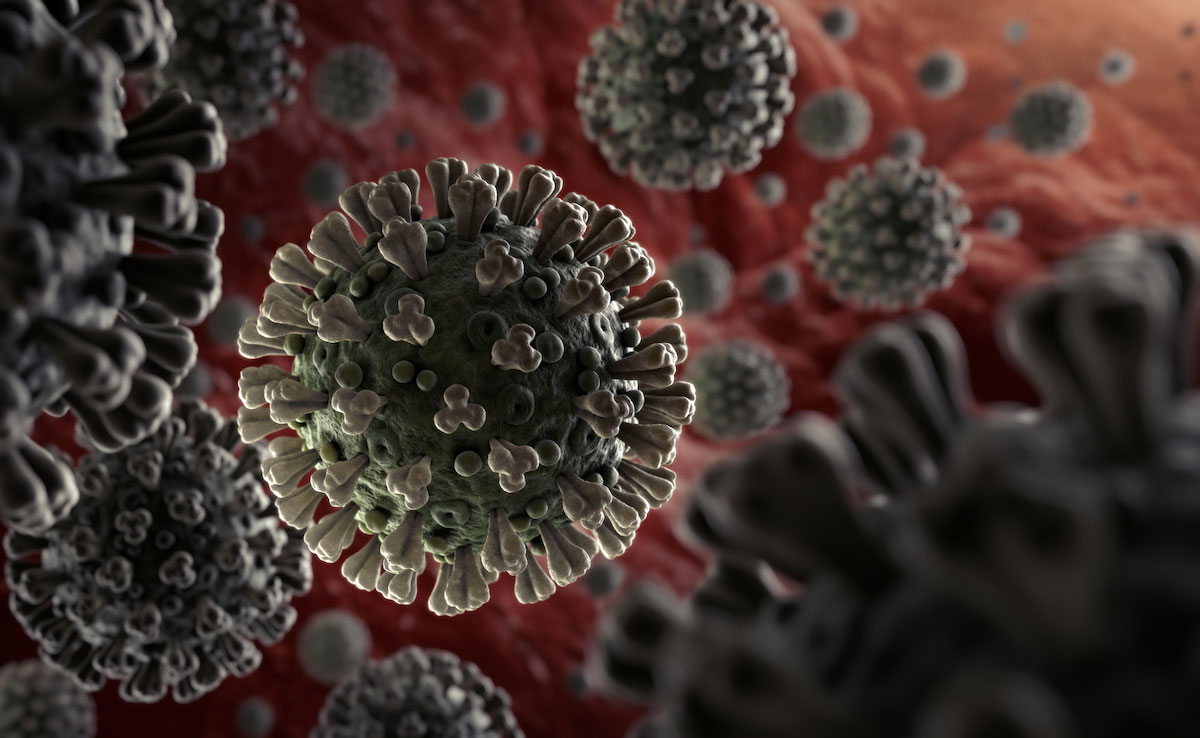<< Back
These Are the Ways COVID-19 is Transmitted (Or Not)

March 12, 2020
Story updated Aug. 3.
COVID-19, a disease caused by coronavirus, spreads mostly from person-to-person contact through viral particles ejected through the mouth by coughing, sneezing, laughing, singing, talking or simply breathing. People within about 6 feet can be infected if these particles reach their mouth, nose or eye.
The Centers for Disease Control and Prevention considers this the primary way the virus has been spreading.
Touching a viral droplet on a surface, then touching your face (mouth, nose or eyes), can also cause an infection. These are the only entry points for the virus, which explains why medical experts are urging people to practice social distancing, wash hands or use a hand sanitizer (at least 60 percent alcohol) frequently and regularly disinfect hard surfaces high-traffic areas in the home, like the kitchen.
“Keep your hands away from your eyes, nose and mouth unless you’ve washed your hands,” says Dr. Stephanie Wright, Assistant Director of Infectious Disease at Hartford Hospital. “And stay away from people who are ill.”
What is a viral droplet?
Viral particles encapsulated in a droplet attach to a cell, assume control, and multiple, spreading from host cell to host cell. Coronavirus can’t go anywhere without a droplet of saliva or mucus.
What’s the life expectancy of the virus?
A study, published in the medRXiv depository, found the virus can remain airborne for up to three hours and survive up to three days on plastic, stainless steel or other hard surface. A study published March 18 in the New England Journal of Medicine found the virus also lasted up to four hours on copper and 24 hours on cardboard. A previous study, published in February, found COVID-19 could last, like SARS or MERS, for up to nine days on a hard surface. The flu virus can survive 48 hours on a hard surface.
How does COVID-19 compare to other transmissible diseases?
COVID-19 is not as contagious as measles. If someone has measles, up to 90 percent of people nearby who are not immune will become infected. Experts initially indicated coronavirus, unlike measles, apparently does not spread through droplets so tiny that they remain in the air for a long time. The World Health Organization, in early July, updated its language: “Short-range aerosol transmission, particularly in specific indoor locations, such as crowded and inadequately ventilated spaces over a prolonged period of time with infected persons cannot be ruled out,
The COVID-19 fatality rate, through mid-June, was 5.2 percent — 5.2 of every 100 people infected with the virus die — compared with a CDC estimate of 0.1 percent in the United States last season’s strain of flu. That makes the COVID-19 death rate 52 times higher that that of the flu. Based on the number of cases, COVID-19 is more severe but doesn’t spread as readily as the flu.
Can viral droplets pass through skin?
No. Some people have applied alcohol or even chlorine to their skin in an effort to avoid coronavirus. Some disinfectants kill coronavirus on surfaces, but none repel virus on human skin. Worse, they can be bad for your skin.
What’s the best way to kill coronavirus on a surface?
A disinfectant containing bleach, ethanol or hydrogen peroxide will kill coronaviruses on a surface.
Can the coronavirus spread through food at a restaurant?
Possible, but unlikely. Heating or reheating food should kill the virus.
Can COVID-19 spread from letters or deliveries, especially products from China?
Don’t worry about deliveries to your house — from anywhere. Coronaviruses don’t last long on objects.
Can you get COVID-19 by kissing someone?
It’s possible, though coronaviruses are not usually sexually transmitted.
If I get COVID-19 and am quarantined, is it OK if my pet is near me?
There’s no evidence that an animal can get a coronavirus from a human.
Not feeling well? Call your healthcare provider for guidance and try to avoid going directly to an emergency department or urgent care center, as this could increase the chances of the disease spreading.
Click here to schedule a virtual visit with a Hartford HealthCare-GoHealth Urgent care doctor.
Stay with Hartford HealthCare for everything you need to know about the coronavirus threat. Click here for information updated daily.
Questions? Call our 24-hour hotline (860.972.8100 or, toll-free, 833.621.0600).
Get text alerts by texting 31996 with COVID19 in the message field.